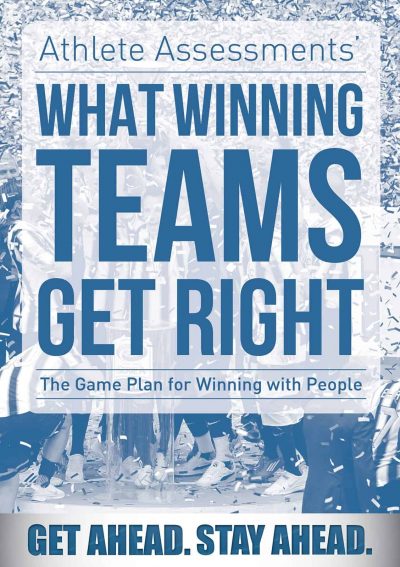We could spend money on flashy advertising, but we know as well as you do that honest feedback directly from clients is the most reliable and credible way to gauge how good a product or service really is. Below are Sports Team Case Studies who have used Athlete Assessments' DISC Profiles, our specialized services, workshops or courses.

Missouri Bears Softball Team
Holly Hesse | Softball Head Coach | Missouri State University
NCAA Division 1 USA College, 2008-2009 Season
2008-09 is Holly’s 21st season leading the Bears’ program. In 2007, she joined an elite group of coaches who have 500 NCAA Division 1 coaching victories in softball.
Holly is the most successful coach in Missouri State history with a 529-501-2 record. Her tenure includes two regular-season MVC titles, four MVC tournament crowns and four NCAA Tournament appearances.
Her team includes: three assistant coaches and 20 softball players in the squad
How was Athlete Assessments used?
- Work with Athlete Assessments included three phone consultations with Bo Hanson, use of the assessments with all players and coaches and access to the included coaching resources.
- An Athlete Assessments Coach login was set up for Holly. Players and coaches were sent their assessment surveys using the automated invitation capability within the coach login. Each person received an individual email and completed their assessments online (in about seven minutes).
- Holly organized a team meeting to discuss the concept of behavioral profiling. The goals were to create a more cohesive team, to help athletes understand their own communication and motivation style, and to identify their respective strengths and limitations in the context of their sport.
- Using a presentation provided by Athlete Assessments, Holly explained the AthleteDISC model. Players quickly understood the core behaviors of each of the four styles and were able to self-select which style they thought they were likely to be (prior to accessing their own results).
- Each player was then provided their personal report to review and to build on their self-awareness. With the aim of creating greater understanding of each other’s personalities, and to minimize behavioral conflicts and misunderstandings, players shared their personal profiles with each other.
- As an ongoing exercise, different pairs of players meet each week to better understand each other. This is reinforced at regular team meetings where players learn more about the team and team goals. The long-term goal is to create stronger emotional bonds on three levels, being the bond between players, the bond to the team’s goal and the bond to the team’s identity.
- Another component of this process was directed towards the coaches, who also completed their own assessments. The information within their personal profiles gave each of the four coaches a better understanding of their preferred coaching style.
What was achieved? Results and Outcomes:
- Within six weeks, players have become more aware of their own sporting behaviors and very aware of the impact they have on each other. An example is in the relationship between the freshman catcher and senior catcher (who is also her mentor). The senior catcher is a ‘high D’ (task-focused, fast paced) and the freshman catcher is a ‘high S’ (people focused, slower-paced) – basically opposites within the AthleteDISC model. The two were becoming very frustrated with each other and conflict was apparent. Holly, using their Athlete Assessments showed them their conflicts over the speed of completing tasks and doing them right. Once the two realized their differences, they created a strategy to make respective adjustments and to value these differences.
- Within the team there exists even greater respect for the diversity of the players’ personalities. Players and coaches now know that to get the most out of each other and the team, they must treat each team member as an individual and according to how that individual would like to be treated. This is helping to build even greater respect within the team.
- The final critical component relates to the coaches’ coaching styles. The concept of Situational Coaching Styles was used and shows how the coaches could be more relationship focused to balance their degree of task focus. During consultation sessions, ‘Athlete Engagement’ was a key area for ongoing work. This is largely related to the coaches’ style of coaching and being able to tailor their style to suit the situation and the specific needs of their individual athletes. This has lead to creating an atmosphere at training where players feel more valued, and they want to be part of the team. At the Missouri Bears this is done to an exceptional level and is a model for other teams of all sports. Find out more about Holly and her team at www.thediamondofsuccess.com
- At the time of this publication, the Missouri Bears have just played and won all first eight games.
AFL Qld Level 2 Coaches Course
AFL QUEENSLAND | NOVEMBER 2008 COACHES COURSE | LEVEL 2 ACCREDITATION
Australian Football League Coach Accreditation Course
This course was for coaches involved at a higher level (rep teams, development squads) with an aptitude and genuine interest in improving their coaching skills. It was conducted through practical, hands-on involvement. The focus was on preparing a coach to plan, prepare, conduct, review and adapt a yearlong coaching program.

How was Athlete Assessments used?
- Prior to attending the coaching course, all of the coaches completed their own Athlete Assessment profile, to better understand their own sporting behaviors and coaching style. Their reports revealed their preferred styles of behaving, motivation and communication preferences, strategies to capitalize on their personal strengths and recommendations to address development opportunities. There was also the optional capability to invite others (i.e. other coaches, players) to answer a survey about them, as they see them, providing a full ‘360 degree’ review and direct feedback to their behavior in the sporting environment.
- Bo Hanson (the developer and founder of Athlete Assessments) also presented a 75-minute session at the coaching course. The session was titled ‘Coaching the Individual Athlete’ and provided the coaches with a debrief of their own profile results and the application to coaching the players in their teams. The session included understanding the role personality plays in sport, an overview of the DISC model, the different styles of athletes and how to be most effective with communication and motivational strategies as the coach.
What was achieved? Testimonials from AFLQ coaches who attended:
“My personal Athlete Assessment profile, gave me a clear insight into myself as an athlete/coach and how I behave, interact and give back information. The session with Bo helped me understand the different personalities and how best to manage their interaction with each other, to best benefit the team as a whole. It turned a light bulb on for a few individuals in the teams I coached this year, even without them doing an assessment, I have a better understanding of why they behaved and reacted the way they did and how to address it better next year.”
Daneal Todkill, Coach at Brisbane North AFL Club
“Bo’s session, gave me a further realization of just how important it is to remember we deal with so many different profiles and personalities within a group, and we must consider this when communicating to our team to obtain the best results and understanding of the individuals.”
David Freeman, Coach at Sandgate AFL Club
“The Athlete Assessment profile is a very good tool for coaches. It helps the coach to understand what motivates each member of their team. What was of most value for me from Bo’s session was when being involved as a coach/mentor to athletes, all are different and we need to recognize athletes as individuals and also recognize that they have different trigger points and approach their sport in a range of different ways, and this does not mean that they are not all motivated toward the same goal.”
Bruce Beaumont, Coach at Coorparoo AFL Club
“What I got from the Athlete Assessment was it made me look at myself and the way I talk and communicate with those I coach. It’s always good to listen to someone who has been competing at Olympic Games level to know what is required in coaching.”
Terry Jensen, Coach at Maroochydore AFL Club

Western Australia's State Men's Softball Team
“Working with Bo definitely increased my appetite to utilize AthleteDISC, not only as a tool to communicate and understand my athletes better, but also myself and how I communicate to individuals. I used this opportunity to understand and acknowledge the team’s current playing style and assist in identifying the challenges of changing the thinking of individuals within the team, to enhance the playing style and attitude of theirs and other individuals within the team. Winning national championships is a long road, but working with AthleteDISC has certainly smoothed the way.” Gary Butler, Head Coach
This team’s head coach and assistant coach wanted to better understand the individuals in the team, and the team dynamics. Both the coaching staff and all of the players used Athlete Assessments, with every athlete completing the AthleteDISC profiling survey.
The assessments helped the coaches to get a better understanding of their coaching style and how they could best meet their team’s needs.
Issues discussed with Bo Hanson included:
- Analyzing the style of play the team was likely to display given their team dynamics profile.
- Creating strategies to more effectively communicate and coach certain players with more complex profiles.
- Understand likely leadership candidates for the leadership within the team.
- Strategies to become a closer bonded team who play for each other and the State they represent.
You can also read testimonials from well-known sports legends, coaches, athletes and athletic directors.
Now it’s your turn.
If you want to experience improved performance and great results like these satisfied clients, or simply want to find out more about Athlete Assessments’ sports profiling products, visit the information for coaches, information for athletes, information for Team Managers & Sports Administrators or information for performance consultants sections.
Or please contact us directly to discuss how we can help with your particular requirements or questions. We are passionate about performance and are here to help YOU.





